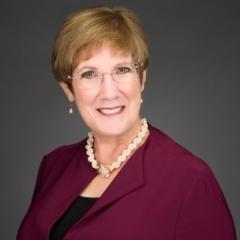
Volunteer of the Month: Cantor Susan L. Levine
Cantor emerita at Farmington Valley Jewish Congregation-Emek Shalom in Simsbury, Connecticut
In what capacity have you volunteered for the ACC recently? Did someone approach you? How did you get started?
I answered a letter that our membership committee sent out. It was an outreach letter sent in 2009. I’ve never been one to respond to something like that, but the letter really touched me. I was anticipating my retirement at that time. I responded, ‘you know I have this big major life transition coming up. I will be retiring, and I know it’s going to be a big emotional, spiritual and financial change in my life and I’m looking for support from colleagues’. I got a wonderful response from Tracy Scher and Jen Frost. They thought it was something very important to bring to our membership. There were lots of colleagues that were going to be looking at the transition to retirement.
I was very fortunate that it was my decision to retire from my career and my congregation. But I still needed lots of support. So, we talked about maybe doing some conference calls, and I was asked if I would facilitate the calls. We had our first call March 2010. There was a wonderful response that tapped our need to connect with each other. We shared a lot and felt supported. Our colleagues who had experienced retirement taught us that there is life beyond our cantorial experience. These new experiences can be quite out of the box. Our monthly calls have been quite special. So that’s how I got started.
From there I was asked to fill a spot on the board of directors. I served on the board from 2011 to 2013. It was a terrific experience to see the inner workings of the ACC, and how hard our volunteers and board members work. They do the best they can to provide resources, learning experiences, convention experiences as well as tackling the issues of the cantorate today. They do a terrific job. I also chaired the Vatikim committee. In just answering that
outreach letter, I gained more than I ever imagined.
What’s the biggest challenge you see facing the cantorate now and in the future?
I think one of the biggest challenges is adapting to new needs of congregations while still maintaining and forging that spiritual relationship as a clergy leader. It’s an important relationship. With congregations looking towards budgets, saving money and things they need to do, they sometimes miss the value of the cantor as a leader within the congregation. Our core comes from Jewish music and prayer but it reaches outward to all facets of synagogue life, e.g. lifecycle events. This need led me to pursue a counseling degree to meet the needs of my congregants. I never thought it would lead to what I do now, having a private counseling practice.
I don’t think congregations focus enough on long range plans or visions. When you’re a clergy leader in a congregation and have the honor of being connected to generations of families within your congregation, from B’rit Milah to B’nei mitzvah to weddings, that gives new meaning: dor l’dor. It’s an incredible experience for everyone. It makes a community stronger. You don’t have that without your personal commitment plus the commitment of your congregation. You form a partnership to have those years together. That concept might be a big challenge. How do we teach that to our congregation leaders, and to those who are going to be stepping up, to get a sense of what community is all about.
Why did you become a Cantor, what were the influences that lead you to this path?
It kind of chose me. I do remember from my own Hebrew school experience in New York City that the music always spoke to me. I grew up within a Manhattan Conservative congregation. I went to the Hebrew Arts School for Music and Dance. That was my first exposure to learning a lot about Jewish music. In college, I majored in music: vocal performance and music education. This led me to perform for Sisterhoods, Hadassah, and synagogues in the greater Hartford area. I went on to become a music teacher in the public school system. I taught guitar and voice privately in my home. I taught nursery school and did a lot of different things until I happened to start out as a soloist. After being a soloist in my congregation I felt a need for greater learning. And so I came to a juncture where I started to study with Rabbi Jon Haddon and Cantor Don Gurney who were both wonderfully supportive. And I just knew that this was my path. It was meant to be. I followed the path to certification in 1990. I am very grateful for my teachers and all the experiences I’ve had, so from a very part time beginning it became a full-time pulpit.
So is something we might not know about you that you’d like to share with us?
I remarried six years ago. At the time, my husband was the president at a neighboring Reform congregation. It was very interesting, that a cantor of one synagogue and a president of another were getting married. At our wedding we had both of our rabbis and two wonderful cantorial colleagues officiate, I had officiated at the wedding of my rabbi, Howard Herman and now 18 years later, he was officiating at my wedding. It was a real family affair. I now have my own private counseling practice specializing in life transitions and women’s issues such as: retirement, divorce, separation, career change, emptynesterhood.

